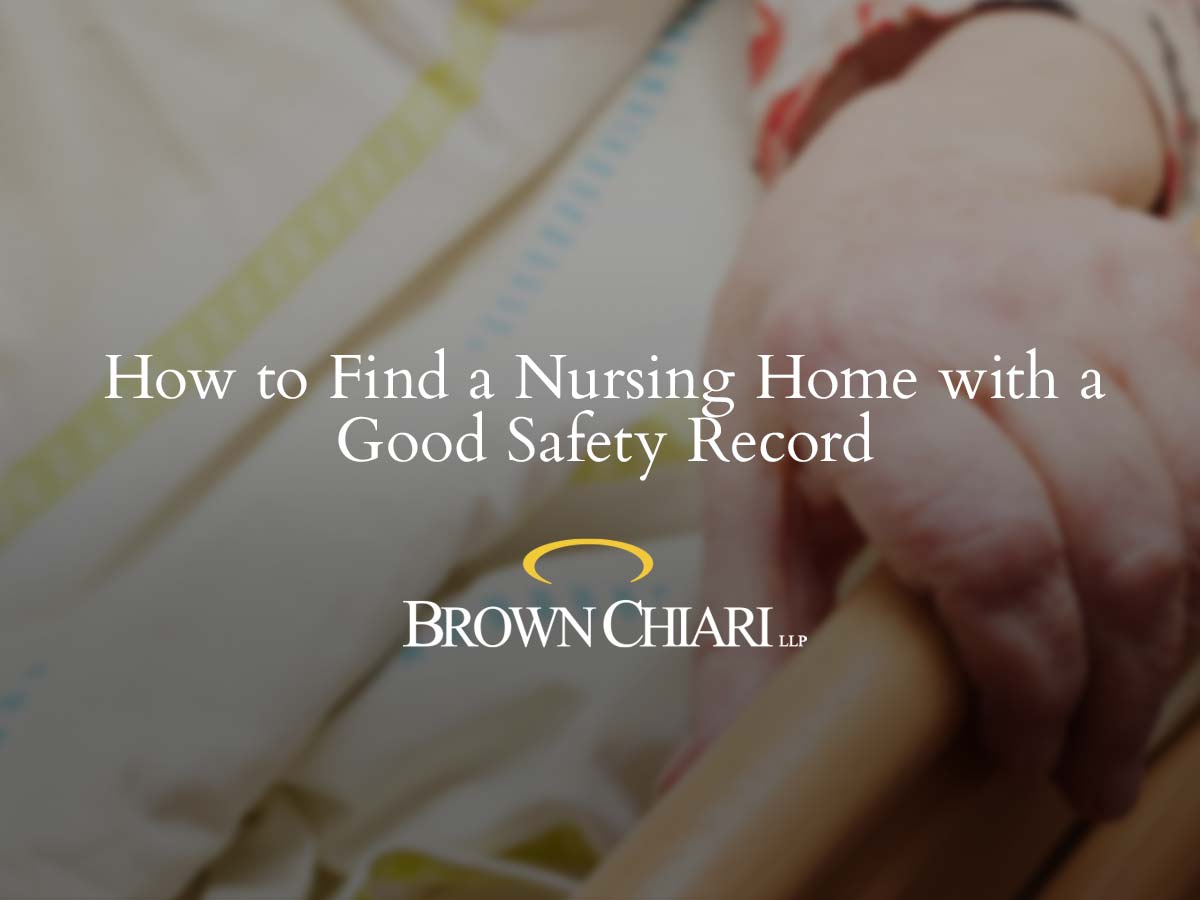Choosing a nursing home for a loved one is one of the most important and emotional decisions a family can make. Families want to ensure their loved ones receive the highest quality nursing care in a facility that prioritizes safety and well-being. But with so many nursing homes to choose from, how do you know which one has a good safety record?
This guide will provide a step-by-step approach on how to find a nursing home with a good safety record. We will explore resources for comparing nursing homes, the role of Medicare and Medicaid, and the factors to consider when evaluating long-term care facilities. By following this process, you can make a well-informed decision that prioritizes the health and safety of your loved ones.
1. Start Your Search for Nursing Homes
When searching for nursing homes, you need to gather as much detailed information as possible about each facility. While you may feel tempted to choose the first facility you hear about, it’s important to conduct thorough research to find the right place for your loved one.
Here’s how to get started:
- Use Medicare’s Nursing Home Compare Tool: This online resource allows you to compare nursing homes based on health inspection reports, staffing, and quality of care. Medicare-certified nursing homes are subject to more rigorous inspection standards.
- Talk to Family Members and Friends: Other families who have been through this process may be able to recommend a facility with a good safety record.
- Check State and Local Resources: County health departments and state Medicaid services often have reports on nursing home safety and care quality.
By searching for Medicare-certified nursing homes, you increase your chances of finding facilities that meet federal safety and health standards.
2. Compare Nursing Homes Using Key Safety Metrics
One of the most effective ways to find a nursing home with a good safety record is to compare nursing homes. When comparing, it’s essential to focus on key indicators of safety, such as:
- Inspection Reports: Review inspection reports available through Medicare’s website or your state’s Department of Health. Look for identified deficiencies related to health, staffing, and sanitation.
- Staffing Levels: Facilities with adequate staffing are more likely to provide higher quality care. Ask about the staff-to-resident ratio and the availability of registered nurses on-site.
- Health and Safety Violations: Identify any violations in past inspection reports and assess how the facility has addressed them.
- Reputation and Reviews: Read reviews and feedback from family members of other residents. Their experiences can provide insight into the facility’s daily operations and quality of care.
If you’re researching long-term care facilities, it’s also important to visit facilities in person. A visit allows you to assess cleanliness, observe staff interactions, and ask questions about the care provided to residents.
3. Visit Nursing Homes In Person
No amount of online research can replace the value of an in-person visit. When you visit, pay close attention to the following factors that can influence safety and quality of care:
- Cleanliness and Smell: Look for fresh-smelling, clean facilities. If you detect strong odors or see signs of poor hygiene, it may indicate issues with staffing or cleanliness.
- The Dining Room: Observe meal service in the dining room. Are residents receiving meals on time? Are they offered nutritious food? Does the staff assist residents who have difficulty eating?
- Safety Features: Check for grab bars, emergency call buttons, and other safety measures to prevent falls and injuries.
- Interaction Between Staff and Residents: Watch how staff interact with residents. Do they seem respectful and attentive, or rushed and dismissive?
A facility visit gives you the chance to see how care is delivered in real time. It’s also an opportunity to ask questions and voice any concerns about the facility’s safety practices.
4. Check Medicare and Medicaid Resources
If your loved one qualifies for Medicare or Medicaid, you may be eligible to access additional information about nursing homes. Here’s how these programs can help you evaluate safety:
- Medicare-Certified Nursing Homes: Medicare certification means a facility has passed federal inspections and meets quality standards. You can compare nursing homes on Medicare’s official website to see their inspection ratings.
- Medicaid Services: Medicaid often pays for long-term care for individuals with limited income. Facilities that accept Medicaid must meet certain quality and safety standards.
Both of these programs provide public resources for families who are searching for nursing homes with good safety records.
5. Evaluate the Cost of Care
The cost of care is a significant factor for many families. Nursing homes can be expensive, and Medicaid and Medicare cover different aspects of care. Here’s how to approach the financial side:
- Ask About Costs and Fees: Request a detailed breakdown of fees, including monthly rates, additional service fees, and any extra costs that may arise.
- Medicaid and Medicare Coverage: If your loved one qualifies for Medicaid, they may be eligible for financial assistance with long-term care costs.
The cost of care can influence your decision, but it shouldn’t be the only factor. Always consider safety and quality first.
6. Check for Specialized Care Options
Every resident has unique needs. If your loved one requires specialized care, make sure the facility can provide it. This could include:
- Memory Care: If your loved one has Alzheimer’s or dementia, specialized care in a memory unit may be essential.
- Rehabilitation Services: If a family member needs rehabilitation after surgery or a hospital stay, the facility should have physical therapists and rehabilitation services available.
- Long-Term Care: For older adults with chronic medical conditions, a facility offering long-term care is essential.
Specialized care ensures that your loved one receives the attention they need, whether it’s memory care, physical therapy, or skilled nursing.
7. Finalize Your Decision
Once you’ve researched, visited, and compared facilities, it’s time to decide on the best option. Here’s what to do before signing a contract:
- Review the Contract: Read the contract carefully and ask questions about fees, services, and policies.
- Ask About the Waiting List: Some of the best facilities may have a waiting list. Plan ahead to avoid delays in placement.
- Talk to a Doctor or Healthcare Professional: Get input from your loved one’s doctor to ensure the facility can meet their health and medical care needs.
Making this decision is never easy, but with the right approach, you’ll be able to find the right place for your loved one.

How Brown Chiari LLP Can Help
If you have concerns about the safety of a nursing home or believe that a loved one has been harmed due to neglect, you may be entitled to take legal action. The nursing home abuse attorneys at Brown Chiari LLP have extensive experience holding nursing facilities accountable for unsafe conditions.
Learn more about how to find a nursing home with a good safety record. Call Brown Chiari LLP at (716) 681-7190 to schedule your free, no-obligation consultation. You can also reach us anytime through our contact page. Let us help you take the first step toward justice and recovery.
FAQ: How to Find a Nursing Home with a Good Safety Record
1. How can I compare nursing homes in my city?
You can use Medicare’s Nursing Home Compare tool to view ratings and inspection reports for nursing homes in your city.
2. What is the role of Medicare and Medicaid in nursing home care?
Medicare and Medicaid both pay for certain types of care in nursing homes. Medicare often covers short-term rehabilitation, while Medicaid can help cover long-term care costs.
3. How can I tell if a nursing home is safe?
Look for cleanliness, review inspection reports, observe staff-resident interactions, and ensure there is adequate staffing. Ask questions about specialized care and visit facilities in person.
4. What should I do if I have concerns about a nursing home’s safety?
Report your concerns to the facility administrator, the Department of Health, or other regulatory agencies. You may also want to consult with a lawyer if neglect or abuse is suspected.
5. Can I get financial assistance for nursing home care?
Medicaid may help pay for nursing home care if you meet specific financial and medical eligibility criteria.
